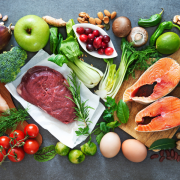Best and Worst Foods for Arthritis in Seniors
Besides osteoarthritis, ankylosing spondylitis, and rheumatoid arthritis, many other diseases can affect the joints, including Lyme disease, lupus, Sjogren disease, etc. Despite the different types of arthritis in seniors, they all cause similar symptoms. These include joint pain, swelling, and stiffness. The intensity of the symptoms may vary from day to day, making it frustrating to live with. But in addition to exercises and other targeted treatments, you can eat to relieve symptoms and live your best life. What are the best foods for arthritis? And which are the worst?
Treatment
There is currently no cure for rheumatoid arthritis, osteoarthritis, or gout. Available drug treatments are focused on relieving symptoms. Diet is one of the most effective ways to alleviate pain and discomfort and give your body the fuel it needs to function at its best.
Nutrition
When it comes to arthritis in seniors, proper nutrition is essential. Many reports indicate that making changes in the diet can significantly help relieve symptoms. Research reveals that foods that are high in sugar, saturated fats, and purines can trigger inflammation and produce joint pain and swelling. At the same time, some foods have anti-inflammatory activity and can improve the symptoms of arthritis. Read on for more about the best and worst foods for people with arthritis.
How Is Diet Beneficial for Those With Arthritis?
Healthy foods can:
- Decrease inflammation in the joints
- Help maintain a healthy body weight, which limits stress on the joints
- Promote healing of the tissues
- Lower the risk of comorbidity like heart disease and stroke
There are some foods that are known to trigger or promote inflammation and lead to a range of symptoms. At the same time, some foods are healthy and promote the healing of tissues and reduce inflammation. For people who have arthritis, it is important to maintain a food diary and avoid trigger foods and instead consume the beneficial foods.
Best Foods for Arthritis
On your next trip to the grocery store, pick up some arthritis-relieving foods, including:
Omega 6 fatty acids.
These are found in oils like sunflower, corn, vegetable, and corn. The omega 6 fatty acids do have anti-inflammatory properties and can reduce the symptoms of arthritis. However, they need to be consumed in moderation. The intake should be between 13-17 grams per day.
Omega 3 fatty acids.
Omega 3’s are known to have potent anti-inflammatory effects. These fatty acids can be found in many types of seeds, nuts, and a variety of fish (e.g. sardines, salmon, herring, etc). One should consume at least 2 servings of fish per week. Another option is to take fish oil supplements.
Vegetables.
Some studies show that plant-based diets can improve symptoms of arthritis. Vegetables that have potent anti -inflammatory activity include garlic, leeks, and onions. Additionally, foods that contain carotenoids like squash, carrots, and sweet potatoes also lower the risk of developing arthritis. Other vegetables that are also potent antioxidants include broccoli, cabbage, spinach, and swiss chard.
Fruit.
Studies by the NIH reveals that berries, citrus fruits, and kiwi are rich in vitamin C and can help protect cartilage and strengthen bone
Worst Foods For Arthritis
We do not believe in “bad” foods. That said, there are some foods that tend to trigger symptoms in seniors with arthritis. These include:
Certain fats:
Research suggests that certain fats can enhance inflammation and worsen the symptoms of arthritis. Fats that should be avoided include the following:
- Saturated fats, commonly found in cheese, butter, and meat. These fats should account for no more than 10% of the total calorie intake per day. For example, if you consume 2,000 calories a day, then the total intake of saturated fats should be less than 200 calories.
- Trans fats, found in fast foods, bakery goods, pizzas, microwave popcorn, etc. Trans fats are known to lower the amount of your ‘good’ cholesterol and worsen inflammation. Besides worsening symptoms of arthritis, these fats also increase the risk of heart disease and stroke
Sugar.
Most people consume an excessive amount of sugar in the form of cola beverages, candies, desserts, etc. Several studies show that individuals who regularly drink cola beverages have an increased risk of developing and worsening symptoms of rheumatoid arthritis. Besides that, excess sugar can lead to obesity and high blood pressure and increase the risk of heart disease.
It is recommended that sugar should account for no more than 10% of the total calorie intake per day or roughly 200 calories per day. Reading labels of food products is highly recommended.
Nightshades.
Nightshades are a collection of vegetables that contain the chemical solanine. Some research shows that eliminating veggies that contain solanine from the diet may help ease the symptoms of arthritis. Veggies that contain solanine include:
- Bell peppers
- Chilli peppers
- Eggplant
- Potatoes
- Tomatoes
Purine foods.
In the body, purine is converted to uric acid which can precipitate in the joint and cause a gout attack and/or worsen symptoms in other forms of arthritis. Foods high in purines include:
- Beer and many types of alcoholic beverages
- Cured meats like bacon, ham, sausages, salami
- Liver
- Red meat
- Seafood such as scallops and mussels
Nutrition is one of the most powerful treatments you have access to as seniors with arthritis. Try to incorporate the best foods for arthritis, while weeding out those that can worsen your symptoms. Do not hesitate to contact Cano Health for help managing your arthritis symptoms and for help in adopting a healthier diet!


